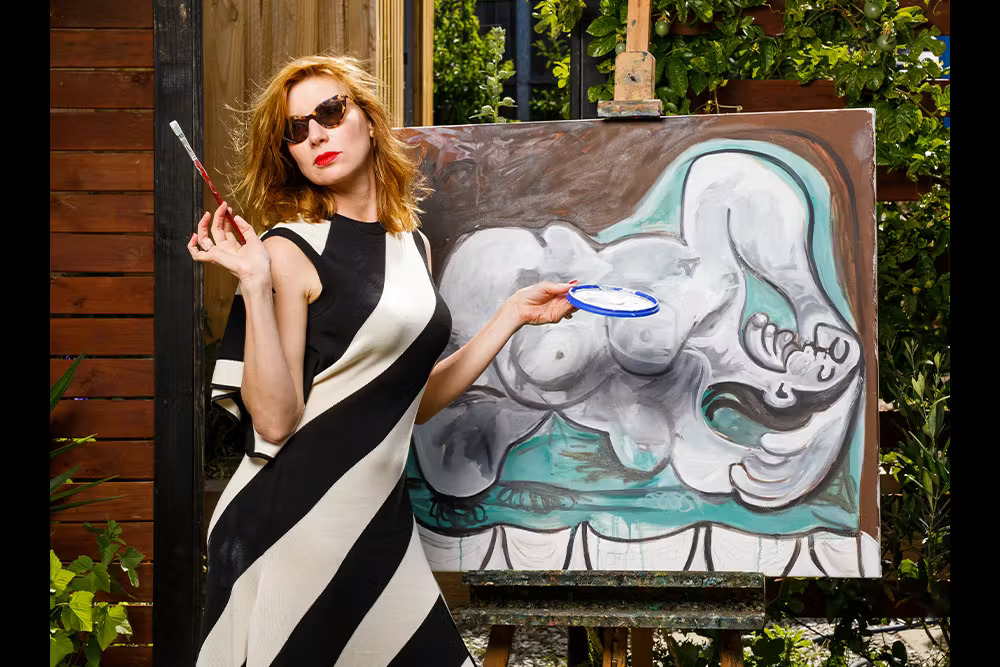News
Picasso Forgeries Unveiled at Women-Only Exhibition in Tasmania’s MONA Museum


On July 10, Tasmania’s private Museum of Old and New Art (MONA) revealed that three paintings presented in its now-infamous Ladies Lounge (2020) installation, previously attributed to Pablo Picasso, are in fact forgeries. The paintings were created by American artist and curator Kirsha Kaechele, who is conceptualizer of the Ladies Lounge and is also the wife of MONA’s owner, David Walsh.
The admission came in the wake of recent suspicions raised by Guardian Australia and the Picasso Administration, which oversees the late artist’s estate. “I made the artworks, quite painstakingly, with my own hands,” Kaechele revealed in a detailed blog post published on July 10 titled “‘Art Is Not Truth’: Pablo Picasso.” Before disclosing the true origins of the paintings, MONA’s promotional materials had previously claimed that Kaechele inherited the artworks from her great-grandmother, whom she alleged was a lover of the late Spanish artist. The forged paintings include Reclining Nude (1932) and Luncheon on the Grass, After Manet (1961); the latter had been hung upside down in the installation for over three years, during which time Kaechele said she had “waited patiently” for a public scandal to unfold.
Moreover, Kaechele acknowledged that other objects showcased in the Ladies Lounge were also not authentic. Among these were New Guinean spears, which MONA had claimed were collected by Kaechele’s grandfather during an expedition where he was supposedly “eaten by cannibals,” and a “mink rug” purportedly from Queen Mary of Denmark.
The Ladies Lounge has become a source of publicity and controversy ever since its opening. In 2020, Kaechele curated the female guest-only exhibit at MONA, designed, in her words, to highlight the historical exclusion of women by creating “an essential space for perspective and reset" from systemic gender inequalities. However, legal challenges emerged when a man from New South Wales, who had been denied entry, filed a complaint with Equal Opportunity Tasmania against MONA. The Supreme Court subsequently ordered MONA to admit male visitors, prompting Kaechele to transform the installation into a women’s toilet—an exception to Australia’s gender discrimination legislation.
In explaining her motivations for presenting the forged paintings, Kaechele wrote that the exhibit “had to be as opulent and sumptuous as possible . . . if men were to feel as excluded as possible, the Lounge would need to display the most important artworks in the world.” Kaechele was also amused by the irony that “a misogynist would dominate the walls of the Ladies Lounge,” referring to Picasso, who famously described women as “either goddesses or doormats.”
Kaechele concluded her post with an apology, in French, to the Picasso Administration, stating: “I am very very sorry for causing you this problem. With great respect for the greatest artist.”
Mioie Kwok is an editorial intern at ArtAsiaPacific.







